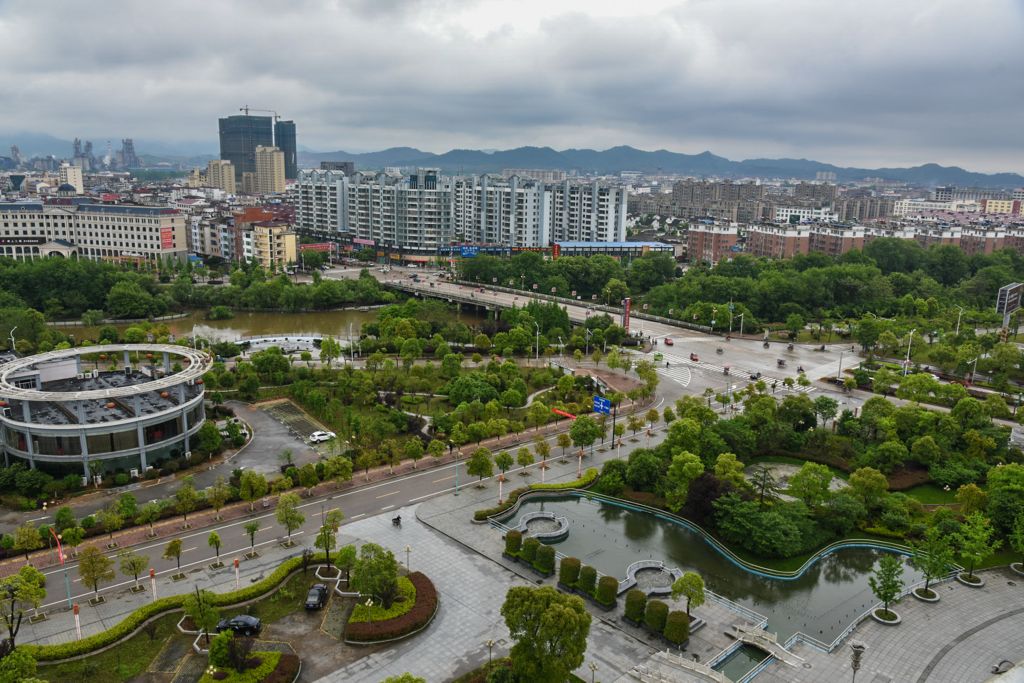Op-Ed
PRC's Path to Higher-Quality Green Development
James Patrick Lynch 20 Nov 2020
As we approach the end of the 13th Five-Year Plan (FYP) (2016-2020) of the People’s Republic of China (PRC), the country can take satisfaction in many notable achievements over the past five years.
The FYP placed significant emphasis on the environment, and set out to reduce total emissions of major pollutants and reverse biodiversity loss and degradation. We saw the concept of Ecological Civilization become enshrined in the PRC’s constitution in 2018, which prioritizes an innovative, coordinated, green, open, and shared approach to development. Ecological Civilization brought forward a new focus on the importance of natural resource management and the need to address pollution challenges around air, water, soil and plastics, and contribute to global climate and sustainability governance.
We are seeing the concept of Ecological Civilization being translated into practice in rural areas, where agriculture, farmers and rural communities have become the core focus of multi-sectoral development efforts. More sustainable use of natural resources is accompanied by a reduction in rural poverty and inequality, and greater food security. Ecological Civilization is promoting more sustainable production and consumption, along with actions to address climate change and protect natural ecosystems. As a result, economic, social and environmental welfare in the PRC’s rural areas is improving.
The forthcoming 14th FYP (2021-2025) needs to carry this positive momentum forward, as well as the concept of Ecological Civilization. The post COVID-19 economic recovery provides the opportunity to make an even stronger commitment to environmental protection and address climate change through high-quality, green and nature-positive development approaches.
Consistent with the focus on greener, more sustainable growth, the 14th FYP is expected to emphasize climate change and outline various initiatives for the PRC to meet its nationally determined contributions (NDCs) under the Paris Agreement. The recent announcement that the PRC will become carbon neutral by 2060 is a strong step in the right direction. Under the 14th FYP, new policies and measures are expected to scale up renewable energy and low-carbon, livable cities.
The theme for 2021 Global Biodiversity 15th Conference of Parties (COP 15) is also rooted in the vision of Ecological Civilization and draws inspiration from traditional and new eco-innovations. This event will adopt a ten-year global biodiversity framework (2021-2030). COP 15 offers a great opportunity for China to ensure that ecological conservation redlining, a one-health approach (human-animal-environment), and sustainable financing mechanisms for natural capital mechanism be incorporated in the 14th Five Year Plan.
The PRC is also looking to strengthen subregional development programs such as the Yangtze River Economic Belt and Yellow River Ecological Corridor by focusing on biodiversity conservation, and using eco-compensation schemes to value ecological resources and services, and ensure this value is preserved. In the spirit of Ecological Compensation, these large-scale rural vitalization programs focus on improving livelihood opportunities for the people and communities in rural areas. This also includes support in the agriculture and tourism sectors, improving access to finance for farmers, households and small businesses as well as efforts to ensure the provision of basis services such as health and education.
The 14th FYP represents both an opportunity and a critical roadmap to achieve high-quality development while advancing renewed forms of international cooperation. Integrating ecological protection and nature-positive approaches will require concerted efforts and the design of a comprehensive set of transformative policies. Three actions will be paramount to achieve these ambitious goals.
First, climate adaptation and mitigation measures must be integral to natural resource management to enhance their impact on the ground. Strengthening linkages among sustainable agriculture and food systems, integrated natural resources and disaster risk management will be critical to enable decision making for climate-resilient investments.
Second, improve natural capital accounting and market-based mechanisms to catalyze green finance in the Yangtze and the Yellow river basins. This will only be possible if coherent policies offer scope for better allocation of funding in areas with high ecological and high conservation value and are aligned with national land-use planning.
Third, incorporate biodiversity conservation into the PRC policy framework of green finance. A crucial step in this direction will be to nurture innovative financial mechanisms for rural vitalization and ecological protection. Other actions needed include accelerating piloting and deployment of new technologies, partnering with innovative companies to improve agriculture value chains by leveraging small entrepreneurs, and enhancing financial disclosure mechanisms to mitigate biodiversity risks.
The ADB has been a partner with the PRC in supporting higher quality and greener development during the 13th FYP, and this focus will remain the cornerstone of our partnership in working together toward a more sustainable future for the PRC, and the Asia and Pacific region.
Author

James Patrick Lynch
Director General, East Asia Department, ADB
This Op-Ed is reproduced from Asian Development Bank.


